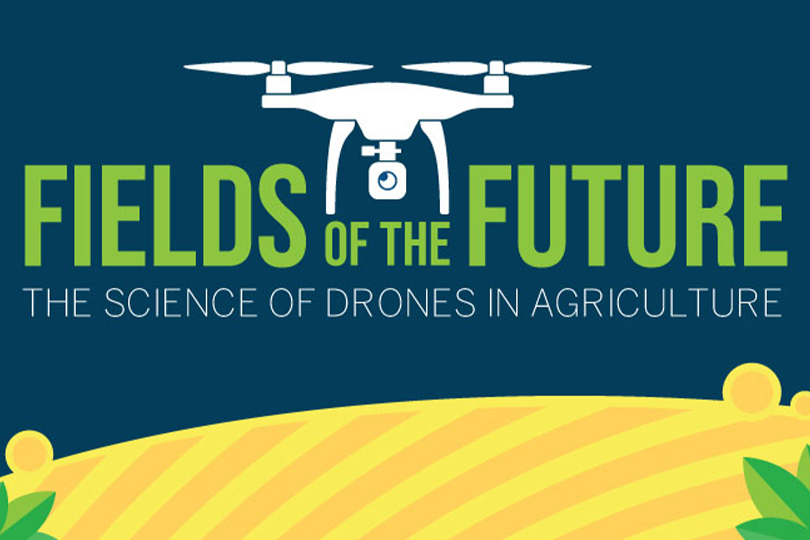Texas high school science teachers will learn the science behind drone technology and its role in agriculture through a new workshop set for April 9-10 in Bryan.
The workshop, Fields of the Future: The Science of Drones in Agriculture, is hosted by Texas Farm Bureau (TFB) and the National Ag in the Classroom Organization in partnership with the Agricultural Research Service of the U.S. Department of Agriculture.
“The workshop will challenge high school science educators to think outside the box to connect agriculture to the concepts being taught in their classrooms,” said Jordan Bartels, TFB associate director of Organization, Educational Outreach. “Participants will engage in hands-on science-based agricultural research regarding plant pests and the emerging use of drones. They will gain an understanding of how modern agricultural practices use enhanced technology research to further the production of a safe and bountiful food supply.”
This opportunity is first-come, first-served. Applications will be reviewed and granted admission until 20 seats are filled. Bartels noted a waiting list will be maintained to contact applicants if seats become available.
“This professional development opportunity is designed to introduce teachers to an area of agriculture—drone technology—that is becoming increasingly more common, along with the science and research behind it,” Bartels said.
Teachers will take home knowledge of how to incorporate the information learned into the classroom, relevant and useful instructional methods, lesson suggestions and activities.
“The goal of this workshop is to equip teachers with the resources they need to incorporate the content and material into their classrooms,” she said.
Teachers will also receive a MAVIC-MINI II drone of their own to fly and conduct research with their students. Participants must be able to connect their drone to a smart phone or mini-iPad during the workshop.
Participants will learn how to fly the drone and how it is used to help farmers from an agricultural engineer in the Aerial Application Technology Research Unit.
They will also engage in how to conduct a research project. This session will be led by a science teacher who uses drones with his students to study the watershed around the school, looking to pinpoint pollution sources and to suggest possible solutions.
Participants will also work with scientists from the Insect Control and Cotton Disease Research Unit. They will observe various insect pests, cotton plants and cotton blooms using digital microscopes, and a mini-cotton gin will be demonstrated.
“Agriculture truly connects with so many topics and concepts that teachers already teach in their classrooms. Our goal is to help teachers dig into agriculture in a way that helps them easily make the connections to the subject areas that they teach,” Bartels said.
Participants will be eligible to receive continuing professional education hours and an $800 stipend that can supplement travel costs, including mileage, hotel and meals.
Registration for the workshop closes March 21.
For more information and to register, visit texasfarmbureau.org/aitc.


[…] Source: https://texasfarmbureau.org/workshop-to-show-teachers-how-farmers-use-science-drones/ […]